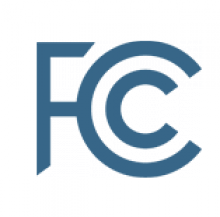What to Report to the OIG Hotline
The Office of Inspector General (OIG) maintains a Hotline to facilitate the reporting of allegations of fraud, waste, abuse, or mismanagement within Federal Communications Commission (FCC) programs or operations. If you wish to report such allegations, you may call, send a letter, or email the OIG Hotline as identified on this page below. Allegations may be reported by FCC employees, FCC contractors, or the general public.
- Contract and Procurement Fraud
- Fraud in Commission programs such as the Universal Service Fund (USF), Telecommunications Relay
- Services (TRS) Fund, and FCC Auctions Programs
- Computer Crimes
- Bribery, Kickbacks, and Gratuities
- False Statements and False Claims
- Conflicts of Interest and Ethics Violations
- Travel Fraud
- Theft and/or Abuse of Government Property
- Other Violations of Federal Laws and Regulations
You are encouraged to provide relevant and specific details, including the identity of the person, company, or organization alleged to have engaged in wrongdoing; a description of the alleged impropriety; the FCC facility and program affected by the alleged misconduct; contract numbers; date(s) of alleged wrongdoing; how you are aware of the alleged impropriety; the identity of potential witnesses; and the identity and location of supporting documentation.
What Not to Report to the OIG Hotline
Note: IRS (Internal Revenue Service) related Phishing and Online Scams should be reported directly to the IRS, using the link below:
https://www.irs.gov/uac/report-phishing
The IRS doesn't initiate contact with taxpayers by email, text messages or social media channels to request personal or financial information. This includes requests for PIN numbers, passwords or similar access information for credit cards, banks or other financial accounts. Phishing is a scam typically carried out through unsolicited email and/or websites that pose as legitimate sites and lure unsuspecting victims to provide personal and financial information.
Whistleblower Protection Page


